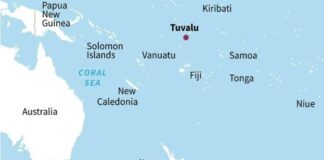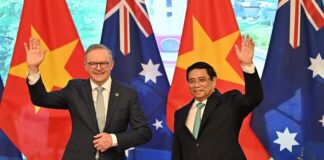Hundreds of people were killed, with hundreds of others injured and arrested, during protests by the Muslim Uighur people in the Xianging region in the west of China recently. Simmering tensions produced by the Chinese state’s long-term oppression of the Uighur people have boiled over.
These are some of the most serious clashes between protesters and authorities since the Tiananmen Square revolt of 1989, which shook the country’s rulers.
The 20th anniversary of that rising has just passed, and the Chinese ruling class is still nervous about the threat of mass movements to its rule.
It has launched crackdowns on any opposition, such as the mass protests in Tibet last year.
The Uighur people are ethnically Turkic Muslims and have suffered discrimination for generations. In 1949, a short-lived breakaway Uighur state, known as East Turkistan, was conquered by the new Chinese Maoist regime.
There have been a number of risings in Xianging since then against Chinese rule.
Domination
The most recent demonstrations were sparked by the death of two Uighurs at a fight in a factory in the region.
The anger has been fuelled by the continuing repression of Islam, the domination of Chinese in the education system and China’s economic plans for Xianging.
These involve seeing the region as a major supplier of oil and other raw materials.
Economic growth has been accompanied by mass immigration by Han Chinese people—the majority ethnic group in China—and unemployment for Muslims.
Until very recently the Uighur people were not allowed to have mosques. The use of the traditional Arabic alphabet is still restricted, particularly in universities.
China has also used the “war on terror” to ramp up its persecution of the Uighur people.
Recent protests have not solely been directed against the state. In some cases there has been communal violence against the Han Chinese population.
China has seen an increase in struggle in recent years. Economic growth has meant worsening of the lives of millions of workers and peasants. In 2009 so far there have been 59,000 demonstrations, strikes, protests and road blockades in the country. In 2008 there were over 180,000 such actions.
China’s rulers’ continuing exploitation of the mass of the population, and its repression of movements for national liberation and workers and peasants’ rights, will only lead to more struggles in the future.
Socialist Worker UK





